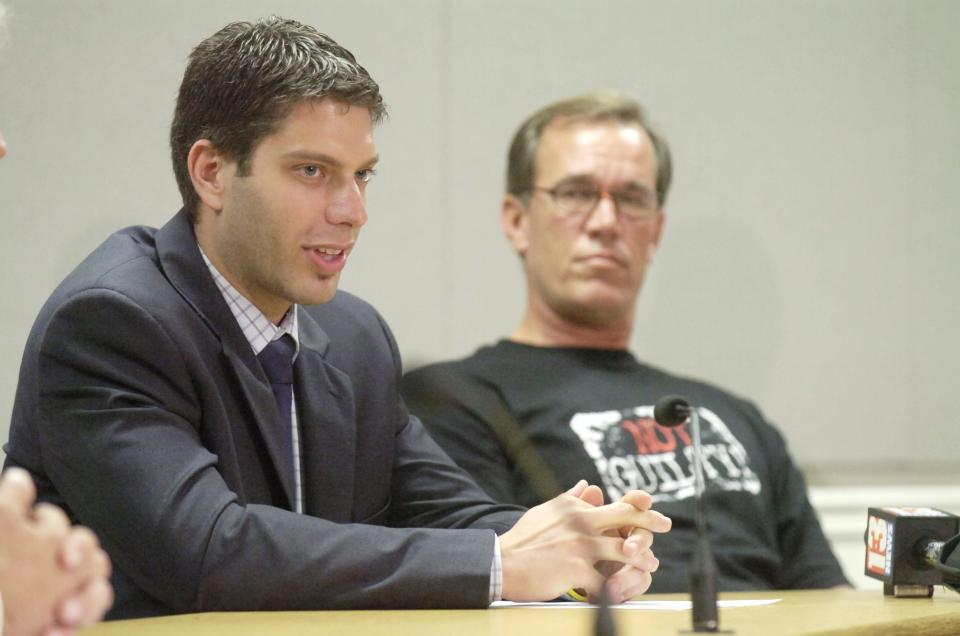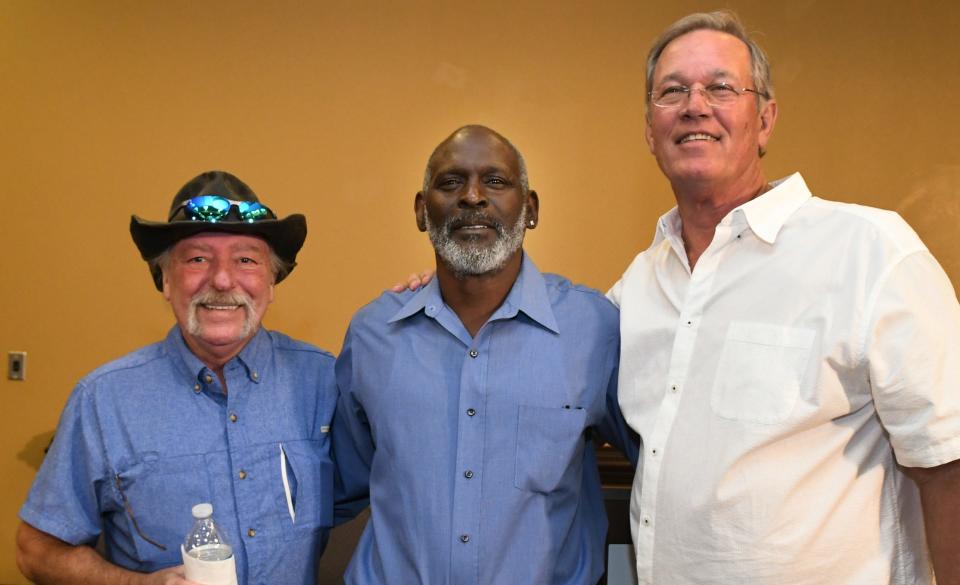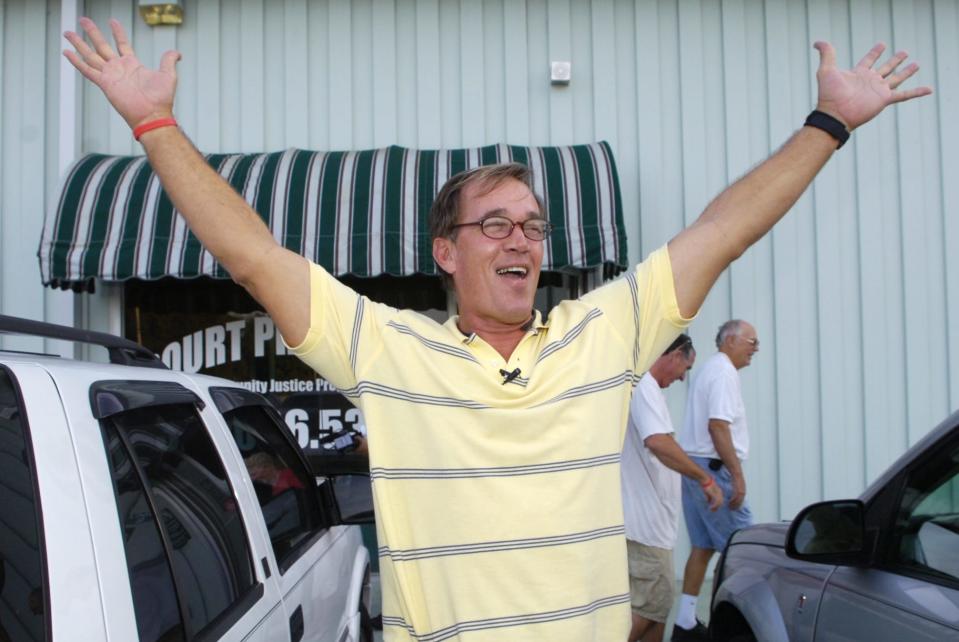Torres: Wrongfully convicted William Dillon's inspiring story banned from Florida prisons
Florida schools aren't the only ones banning books these days. It seems the Department of Corrections is getting in on the act.
Hope can be a dangerous thing for the hopeless but it can also provide the the spark needed to face another day.
That's why it saddened me to hear that William Dillon's account of his 27-year incarceration for a crime he did not commit is being banned in our state prisons. Dillon, along with wife Ellen Moscovitz, recently finished writing and publishing Dillon's account in a page-turner called "Framed: The Corruption and Cover-up behind the wrongful conviction of William Michael Dillon and his twenty-seven year fight for freedom."

Dillon was convicted and sentenced to life for the murder of James Dvorak in 1981 at Canova Park.
The book details how Dillon was wrongfully arrested and then convicted with the help of a fraudulent dog handler named John Preston. It describes the investigation, the trial, Dillon's incarceration and his improbable quest for freedom that saw the Innocence Project of Florida and Assistant Public Defender Mike Pirolo team up to prove Dillon was innocent.
It was their collaboration fighting for DNA testing of a key piece of evidence that cleared Dillon and eventually allowed the Brevard County sheriff to identify the real killer. I covered Dillon's fight for freedom and interviewed him while he was still in prison. I was there when Dillon left the Brevard County Jail, where he had been transferred for his hearing, as a free man.
"Banning my book takes away a message of hope to the wrongfully convicted prisoners still behind bars," Dillon said. "Florida made a mockery of justice in my case, and took away nearly three decades of my life. I want the world to know what they did to me, so it will be harder for them to do it to anyone else. All prisoners should know what they are up against."
The book also offers a no-filter look at what Dillon experienced in prison, particularly during his first hour when he was gang-raped by several men, causing him to contemplate suicide.

A friend of inmate Gary Bennett, whom I've also written about and believe was also wrongfully convicted, sent him a copy of Dillon's book from Amazon. Bennett never received the book but Dillon received a notice from the Department of Corrections explaining that the book "presents a threat to the security, order or rehabilitative objectives of the correctional system or the safety of any person."
Starting in April, I've reached out three times to the Department of Corrections for a comment but no one has responded.
The notice sent to Dillon goes on to cite pages 13-17 and 197-202 as depicting gang rape and violence. Should Dillon have sugar-coated his time in prison? Instead of banning the book, maybe the DOC should just do a better job protecting the inmates from being sexually assaulted. Just a thought.
Related stories: Torres: A longtime judge with a heart for helping others leaves the bench
Torres: Different time, different prosecutors, same dirty play | Opinion
Does this book jeopardize security, order or rehabilitative objectives or does it simply offer hope?
Surely inmates have seen or experienced the same things Dillon endured.
Maybe there is more of Dante's Divine Comedy here ―"Abandon all hope all ye who enter here" ― than there is concern that Dillon's book poses a threat.
I get that prison is a place where law breakers are punished by having their freedom taken away. The vast majority belong there and probably don't deserve some of the perks we get to enjoy. But banning books that offer hope? Dillon's book and life story are proof that faith and perseverance do sometimes pay off. His book does not threaten security. There is nothing in his book about how to put a file inside a cake or how to break out of prison.

"The Florida DOC is afraid for prisoners to know the truth about the patterns of abuse, corruption and cover-up that has been shown to be pervasive throughout Florida’s justice and correctional system," Moscovitz said. "Tragically, William’s story is not a unique one."
The DOC has a Literature Review Committee that meets twice a month to screen books and magazines. Subscriptions and book orders by prisoners and contributions from Books to Prisoners programs are reviewed in Tallahassee before they are distributed to the agency's 143 facilities.
According to the Marshall Project, a non-profit journalism group that studies and reports on the criminal justice system, the terrific prison escape novel "Papillon" is banned from Florida prisons.
Also banned were the 2020 Fantasy Football Guide, books about Al Capone, Amazing Sea Life adult coloring book and Basic French to name just a few of the 20,210 books prohibited. Not listed are perhaps two of the greatest prison escape stories ever written: "The Count of Monte Cristo" and "The Shawshank Redemption."
Incredibly, also banned is a book called “How to Leave Prison Early," a how-to book on work release, parole and clemency.
Maybe banning Dillon's book has nothing to do with anything I've already mentioned. Maybe the folks at the Department of Correction are just embarrassed by it. If that's the case, I guess I can't blame them. They should be embarrassed.
Contact Torres at jtorres@floridatoday.com. You can follow him on Twitter @johnalbertorres or on Facebook at facebook.com/FTjohntorres.
This article originally appeared on Florida Today: Wrongfully convicted man's inspiring story banned from Florida prisons

